Meet the 2023-24 Climate and Democracy Fellows
January 16, 2024
PPEH is delighted to introduce the 2023-24 Climate and Democracy Graduate Fellows. Selected in partnership with the Andrea Mitchell Center for the Study of Democracy, these fellows have already begun collaborating on projects that explore our annual theme of “Climate and Democracy.” We are so excited to see what they will explore and can't wait to share that work with you through upcoming events. Meanwhile, read on to discover more about their varied areas of study and how they tackle the challenges of climate change related work.
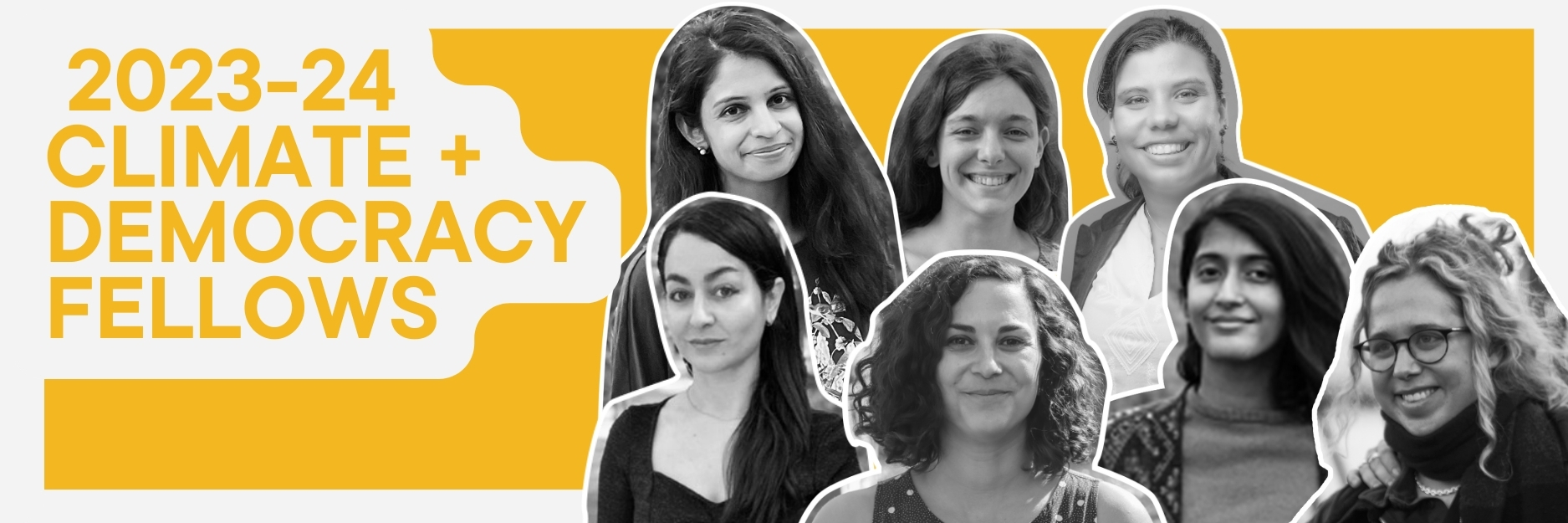
Tayeba Batool
PPEH: What is your area of study, and hometown?
Tayeba Batool: Urban and Environmental Anthropology; Rawalpindi, Pakistan
PPEH: What aspects of the fellowship are you most looking forward to over the coming year?
TB: I am excited to read along and think-with fellows from other programs on constructions and debates around climate change. In our journey so far we have discussed how decolonization, grief, music, and futures are held together in a conversation about climate and its experiences. I envision that next semester we will come together as part of a public-facing dialogue that can combine our different knowledge and experiences with the topic. I am also excited to write more on the subject as part of the fellowship.
PPEH: Can you tell us a bit about what’s currently on your bookshelf?
TB: So much! One of the more urgent reads that I have in my hands is The Hundred Years' War on Palestine: A History of Settler Colonialism and Resistance 1917-2017 by Rashid Khalidi. The book is an account of Palestinian displacement under a regime of settler colonialism. I have been increasingly thinking about the way that occupation is green washed and how climate changes are a direct result of settler colonial practices and ideologies that devalue life across all worlds. I am reading this book after many many years to better understand how we can look through archived stories and records and see climate injustice happening through other words and across the century.
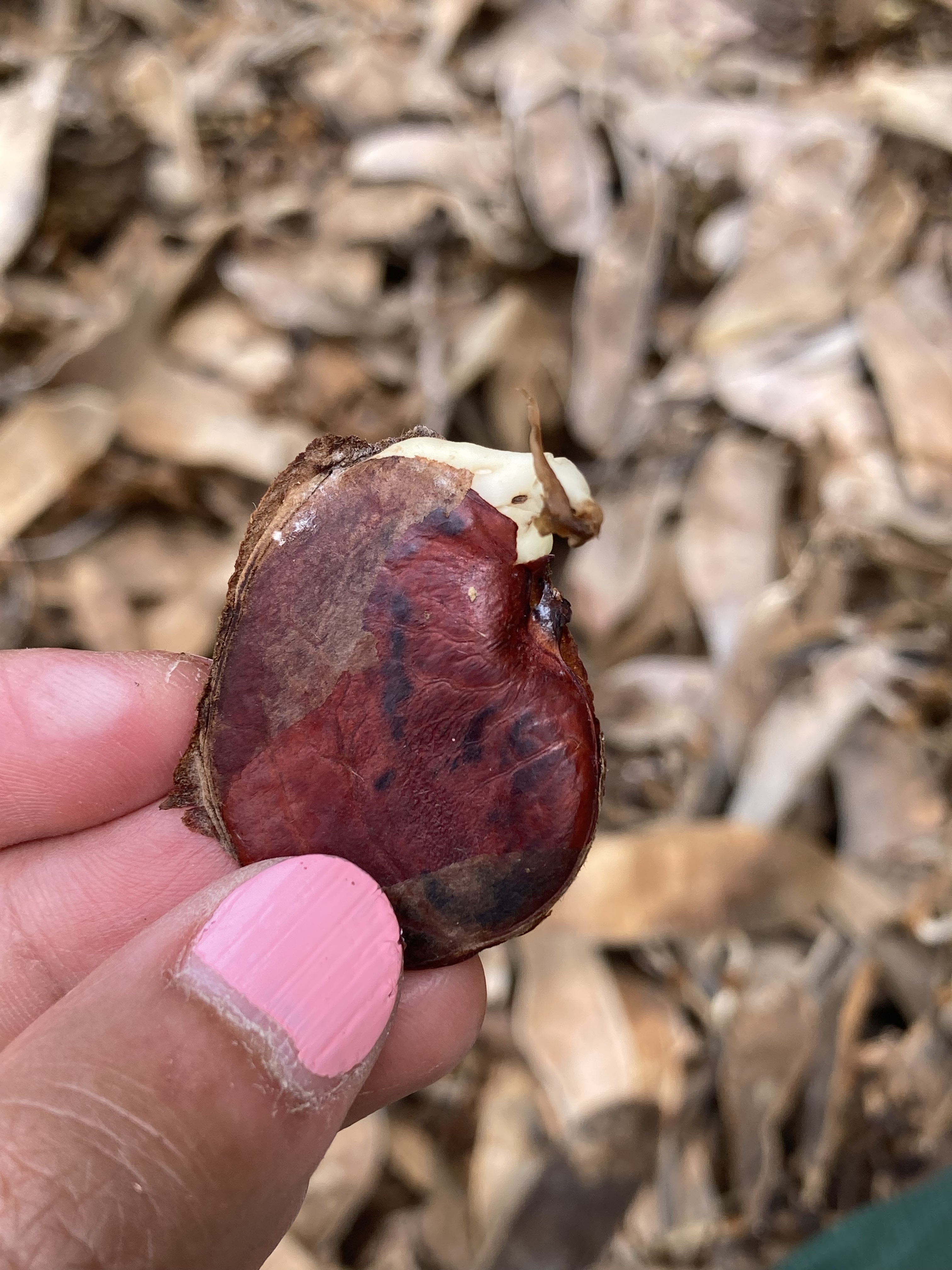
"In the middle of extracting seeds from their shells at the plant nursery in Islamabad, I found this seed that had germinated without any human interference. The monsoon rains had provided enough moisture for the seed to start its germination process.”
PPEH: What do you do when you get down about the climate crisis?
TB: Breathing exercises and being outdoors with some trees and nonhuman life. Sometimes the weight of violence around us can be felt in very visceral ways, and it feels heavier when the world fails to acknowledge the intersection of climate crisis with genocide, war, displacement, and erasure of people and lands. I really think that conscientious thinking cannot come without conscious breathing and often, once you can become receptive to your own life-giving system you can better see others as well. And this helps to create spaces for oneself and others to share grief, uncertainties, struggles, and solidarity across differences. And being outdoors is important too. How can we talk about climate without experiencing it across minute and grand scales? There are wonders in the growing of trees and plants, insect sounds and presence, animal life, and the very spontaneous ways that life arranges itself along one another.
Sarah Eskandari
PPEH: What is your area of study, and hometown?
Sarah Eskandari: My research interests encompass gender, religious mobility, anti-patriarchal discourse, and negotiating with patriarchy in Iran and the modern Middle East. I am originally from Tehran, Iran.
PPEH: What aspects of the fellowship are you most looking forward to over the coming year?
SE: Environmental activism
PPEH: Can you tell us a bit about what’s currently on your bookshelf?
SE: Historical books, mostly! However, I also have books on sociology, gender studies, philosophy, and religious studies. I would like to recommend Social Movements in Iran: Environmentalism and Civil Society by Simin Fadaee. This comprehensive book provides valuable insights into recent movements in Iran, emphasizing the role of women and environmental organizations. It explores their contributions, including raising awareness about the depletion of water and other natural resources in Iran. The demonstrations discussed in the book not only indicate a growing environmental consciousness in various segments of Iranian society but also underscore the active involvement of civil society organizations in addressing these issues through collaborative efforts.
PPEH: What do you do when you get down about the climate crisis?
SE: I strive to empower myself by making informed choices and contributing to positive change. I actively seek opportunities to learn about effective actions and solutions. Connecting with like-minded individuals is crucial for engaging in healthy conversations about the environmental crisis. Lastly, if I ever feel overwhelmed or stressed regarding the climate crisis, I prioritize seeking support from mental health professionals.
Audrey Jaquiss
PPEH: What is your area of study, and hometown?
Audrey Jaquiss: Political Theory; Milwaukee, Wisconsin
PPEH: What aspects of the fellowship are you most looking forward to over the coming year?
AJ: Gathering resources from climate-minded scholars, and collaborating on written projects.
PPEH: Can you tell us a bit about what’s currently on your bookshelf?
AJ: Emerging books in capitalism and climate studies, critiques of science.
PPEH: What do you do when you get down about the climate crisis?
AJ: I write! And read. And strategize with my friends.
Helene Langlamet
PPEH: What is your area of study, and hometown?
Helene Langlamet: I guess you could say my field is Environmental Communication. Annenberg didn't have a concentration in Environmental Communication while I was completing my degree there, so the people on my committee tend to be Political Communication scholars. My approach is influenced in part by that and in part by my undergraduate background in Sociology and Anthropology. I take a political ecology angle on the question of climate change.
I don't really have a hometown. I came to Philadelphia to complete my degree from Berkeley. I spent most of my childhood in Berlin, but was born in New York City.
PPEH: What aspects of the fellowship are you most looking forward to over the coming year?
HL: I look forward to working with my fellow fellows on our final project and getting to know everyone better.
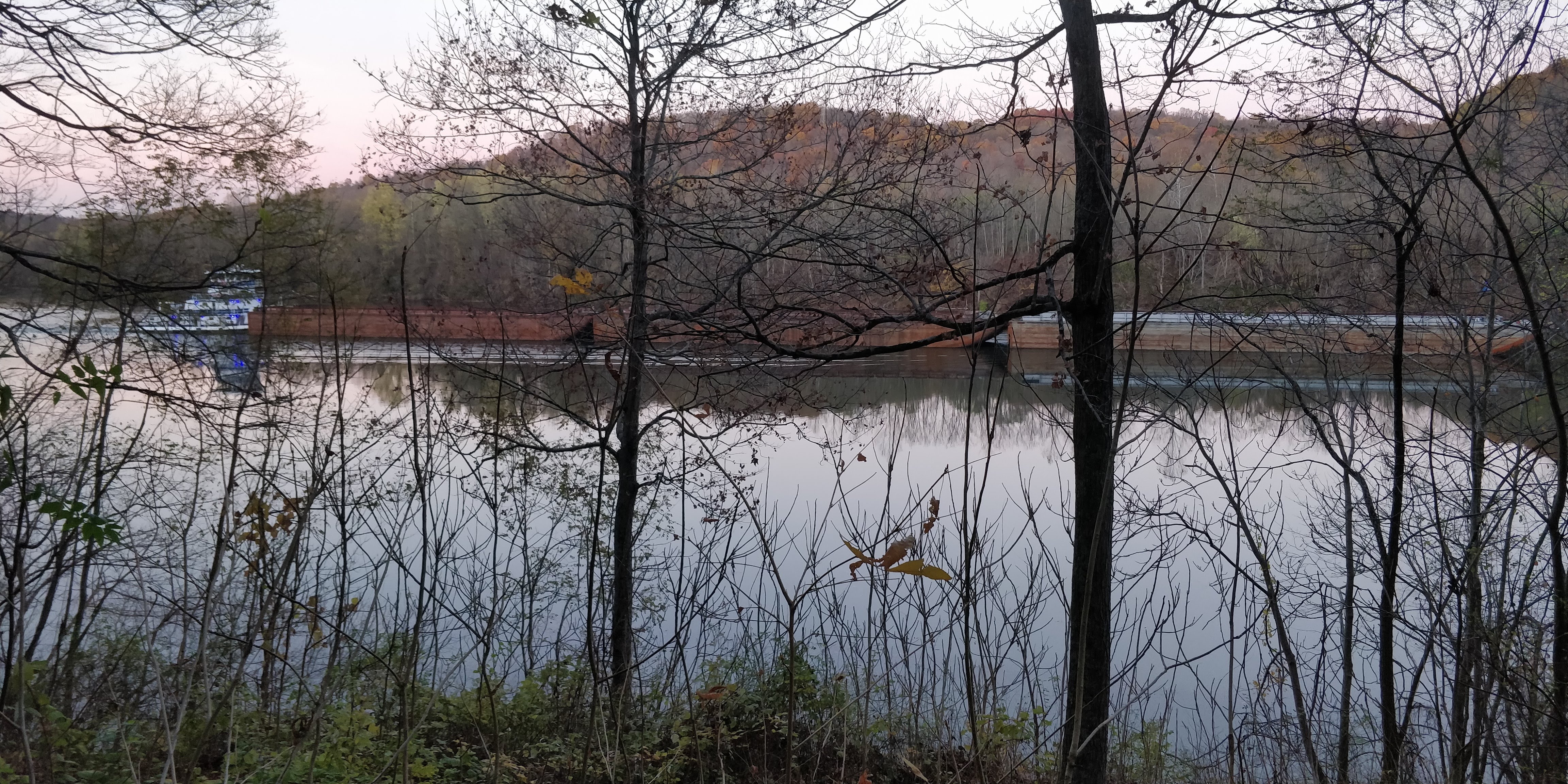
"These photo was taken along a trail in Greene County, PA, the poorest county of the ones where I conducted my fieldwork. This one shows a giant coal barge traveling down the Monongahela River. "
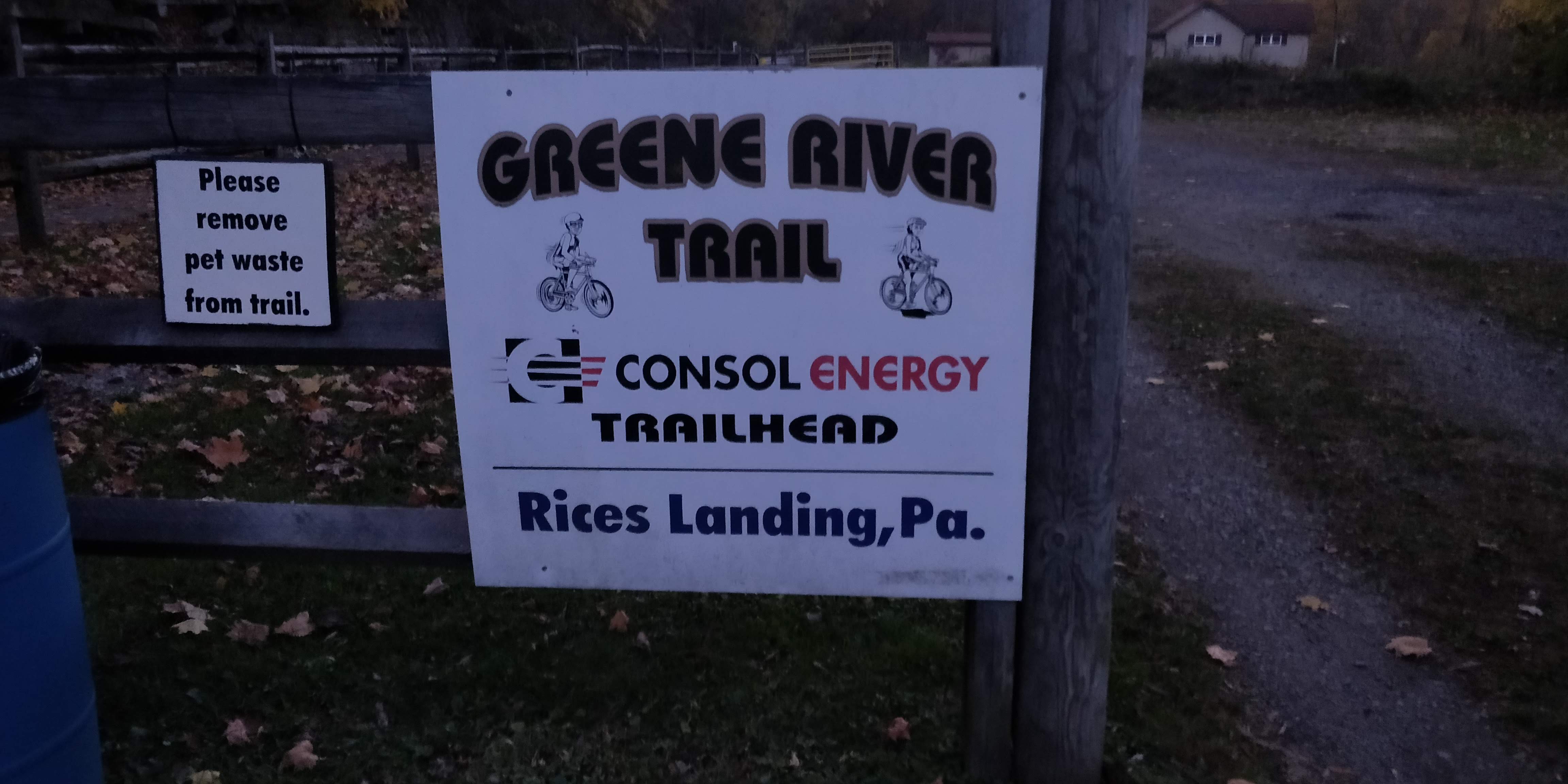
"This trail was sponsored by Consol, who was accused by a local environmental group in the area of undermining the dam holding in a small artificial lake, so that the dam had to be removed, killing all the fish that residents had stocked it with.”
PPEH: Can you tell us a bit about what’s currently on your bookshelf?
HL: It's one of my deepest frustrations with my current life that I don't have a lot of books on my bookshelf. I have moved so frequently in the past few years that I now have no idea where my (I think exhaustive) collection of the works of Kafka went or some of the touchstones that have really influenced my research like "Heatwave" or "The Politics of Resentment" or "To Save the Land and People" or "Strangers in their Own Land" (to name just the ones that come to mind right now). Currently, I'm reading through a volume of short stories, Twenty-One Stories by Graham Greene that I'm quite enjoying. I especially liked a short story called "The Destructors" about a band of boys in London either during or right after WW2 meticulously destroying their neighbor's house that had been spared by the bombings from the inside during his absence "just because."
PPEH: What do you do when you get down about the climate crisis?
HL: As part of our discussion group, we were asked to listen to a song called "Baraye" that has become the informal protest anthem of Iran. I have been listening to that on loop, because I feel it gives me permission to be sad, but also uplifts me somehow.
Rehana Thembeka Odendaal
PPEH: What is your area of study, and hometown?
Rehana Thembeka Odendaal: Education & Sociology; Cape Town, South Africa
PPEH: What aspects of the fellowship are you most looking forward to over the coming year?
RTO: I am most excited about seeing how the increased attention to the humanities and social implication of climate change are approached through different disciplinary perspectives. In thinking about Climate & Democracy, I think that the global and totalizing scale of the climate crisis offers a critical opportunity for traditionally siloed academic disciplines to collaborate and learn from one another.
PPEH: Can you tell us a bit about what’s currently on your bookshelf?
RTO: Many, many Sociology of Education books - I am busy studying for a comprehensive exam in December 2023.
I've also just read my Dad's latest book, Dear Comrade President: Oliver Tambo and the Foundations of the South African Constitution, (André Odendaal) which was a surprisingly smooth read despite the close archival detail.
Climate-wise, I am reading up on social movements in the Climate sphere: Movement Makers: How Young Activists Upended the Politics of Climate Change by Nick Engelfried, Grassroots Environmentalism by Suzanne Staggenborg, and The New Climate Activism by Jen Allen.
PPEH: What do you do when you get down about the climate crisis?
RTO: I am interested in how the links between the climate crisis and capitalism open up opportunities for new ways of valuing knowledge and practices from the global South. My research is particularly focused on how social movement histories in different locations have shaped the organizing strategies and political motivations of youth climate activists operating at a local and global level.
Vanessa Schipani
PPEH: What is your area of study, and hometown?
Vanessa Schipani: Philosophy; Fort Lauderdale, Florida
PPEH: What aspects of the fellowship are you most looking forward to over the coming year?
VS: My work is very interdisciplinary, so I'm always interested in seeing how people in other fields ask similar questions in different ways than me, or pay attention to different aspects of the climate crisis altogether. So, while I'm looking forward to many aspects of the fellowship, I'm particularly looking forward to sharing ideas with people who work in different disciplines than me.
PPEH: What do you do when you get down about the climate crisis?
VS: As cheesy as this might sound, my students make me optimistic about the climate crisis. So when I feel down about it, I remind myself that many young people are determined to make a difference and set us on the right course. The people of my generation (millennials) can and must make a difference as well, but Gen Z unfortunately grew up with climate change, so I think the impetus for change is strongest within them, and that inspires me and gives me hope.
PPEH: Can you tell us a bit about what’s currently on your bookshelf?
VS: Right now in my free time I'm reading Ursula Le Quin's The Left Hand of Darkness. While it's not directly about climate change, it does discuss how people of different cultures can transcend differences and unite, which is vital to overcoming the climate crisis.
Koyna Tomar
PPEH: What is your area of study, and hometown?
Koyna Tomar: My dissertation is a social and environmental history of dairy industrialization and developmental state-making in colonial and postcolonial India. More broadly, I am interested in the history of science and technology, agrarian political economy, and environmental history. I grew up in Aligarh in northern India.
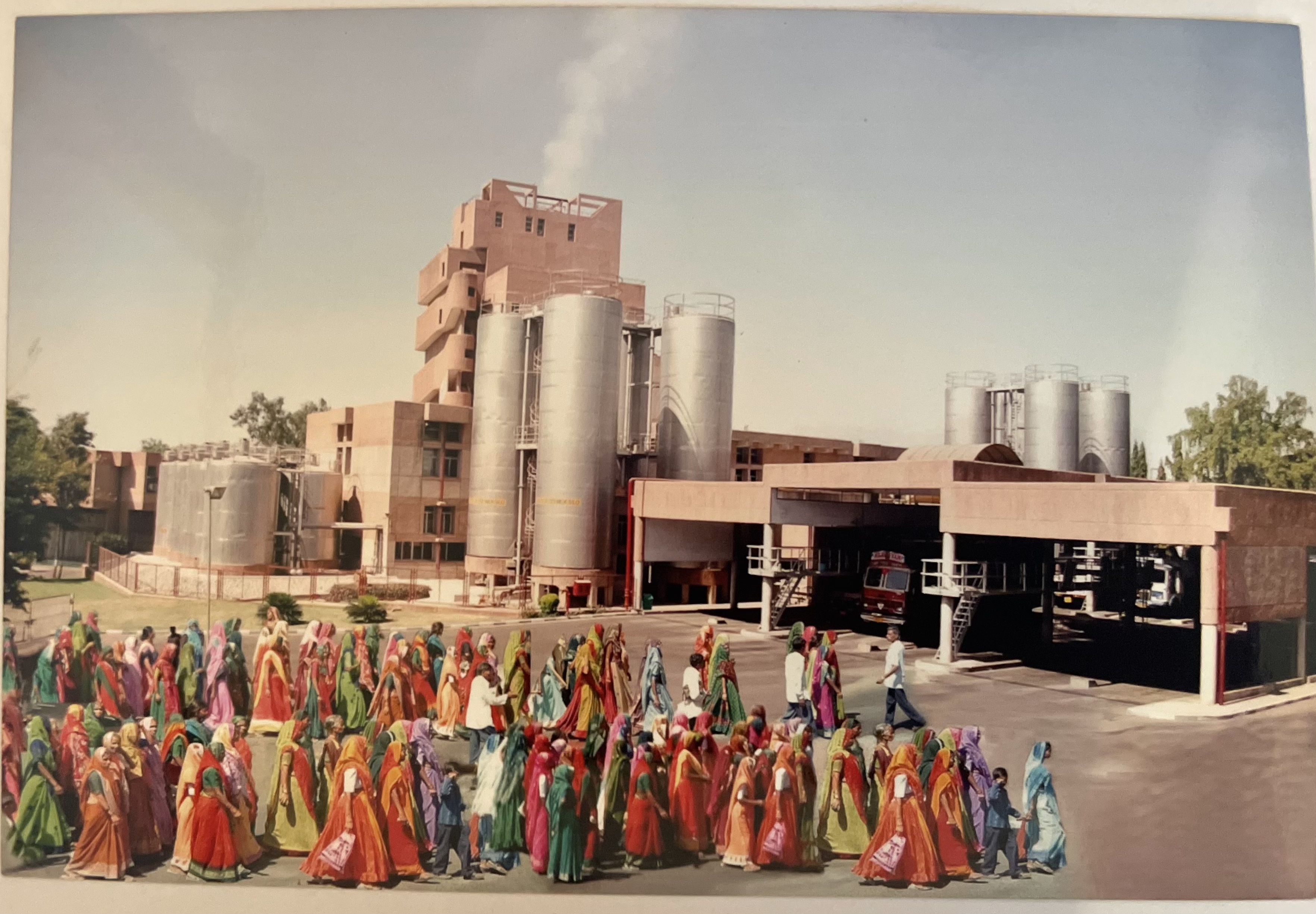
Women farmers at a dairy processing plant in Anand, Gujrat, c.1980s. Source: Record Room, Kaira Cooperative Dairy.
PPEH: What aspects of the fellowship are you most looking forward to over the coming year?
KT: I am looking forward to engaging with fellow graduate students from other disciplines who have been thinking and writing on related issues.
PPEH: Can you tell us a bit about what’s currently on your bookshelf?
KT: This week I am reading a set of books on the history of agrarian crisis and reforms in Latin America, including Tore Olsson's Agrarian Crossings and Timothy Lorek's Making the Green Revolution. Besides this, my bedside bookshelf currently has some fiction/non-fiction that I try (and often fail) to make time for: A collection of essays by Jenny Diski called 'Why didn't you just do what you were told', Izumi Suzuki's short stories in Hit Parade of Tears, and Nanni Balestrini's novel We Want Everything. ◆
